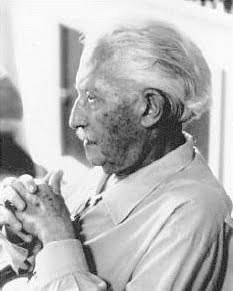Erik Erikson’s stages of psychological development
They are a psychosocial theory that maps the development of human personality throughout the lifespan. Erikson believed that personality develops in a series of eight stages, each of which is characterized by a psychosocial crisis, a conflict that must be resolved in order to move on to the next stage.
The eight stages of Erikson’s psychosocial development theory are:
Stage 1: Trust vs. Mistrust (Birth to 18 months)
During this stage, infants develop a sense of trust or mistrust in the world around them based on their experiences with their caregivers. If infants are consistently met with their basic needs and cared for with love and affection, they will develop a sense of basic trust. If their needs are not met or they are treated with neglect or abuse, they will develop a sense of mistrust.
Stage 2: Autonomy vs. Shame and Doubt (18 months to 3 years)
During this stage, toddlers develop a sense of autonomy or independence. They begin to assert their own will and explore their surroundings. If toddlers are given opportunities to exercise their autonomy and are encouraged to learn new things, they will develop a sense of competence and self-reliance. If they are shamed or discouraged for their attempts at independence, they will develop a sense of shame and doubt.
Stage 3: Initiative vs. Guilt (3 to 6 years)
During this stage, preschoolers develop a sense of initiative. They become more active and assertive in their play and relationships. If preschoolers are encouraged to explore their interests and try new things, they will develop a sense of competence and purpose. If they are discouraged or punished for their initiatives, they will develop a sense of guilt.
Stage 4: Industry vs. Inferiority (6 to 12 years)
During this stage, school-age children develop a sense of industry. They begin to focus on learning and mastering new skills. If children are successful in school and other activities, they will develop a sense of competence and self-worth. If they struggle or are not successful, they may develop a sense of inferiority.
Stage 5: Identity vs. Role Confusion (12 to 18 years)
During this stage, adolescents develop a sense of identity. They begin to explore different roles and identities and try to figure out who they are and who they want to be. If adolescents are able to successfully explore different identities and develop a strong sense of self, they will emerge from this stage with a clear sense of identity. If they are unable to explore different identities or develop a strong sense of self, they may experience role confusion.
Stage 6: Intimacy vs. Isolation (18 to 40 years)
During this stage, young adults develop close relationships with others, such as romantic partners, friends, and family members. If young adults are able to develop and maintain close relationships, they will develop a sense of intimacy and connection. If they are unable to develop close relationships, they may experience isolation and loneliness.
Stage 7: Generativity vs. Stagnation (40 to 65 years)
During this stage, middle-aged adults focus on giving back to others and making a difference in the world. They may do this through their work, their relationships, or through volunteerism. If middle-aged adults are able to find ways to be generative, they will develop a sense of purpose and meaning in life. If they are unable to find ways to be generative, they may experience stagnation and a sense of meaninglessness.
Stage 8: Integrity vs. Despair (65 years and older)
During this stage, older adults reflect on their lives and come to terms with their accomplishments and regrets. If older adults are able to look back on their lives with a sense of satisfaction and acceptance, they will develop a sense of integrity. If they are unable to look back on their lives with satisfaction and acceptance, they may experience despair.
It is important to note that Erikson’s stages of psychosocial development are not linear. People may move back and forth between stages throughout their lives. Additionally, people may experience different stages at different ages. For example, some people may experience the identity crisis of adolescence in their early twenties, while others may not experience it until their late twenties or early thirties.
Erikson’s stages of psychosocial development are a useful framework for understanding how personality develops throughout the lifespan. By understanding the challenges and opportunities of each stage, people can better support themselves and their loved ones as they progress through life.

